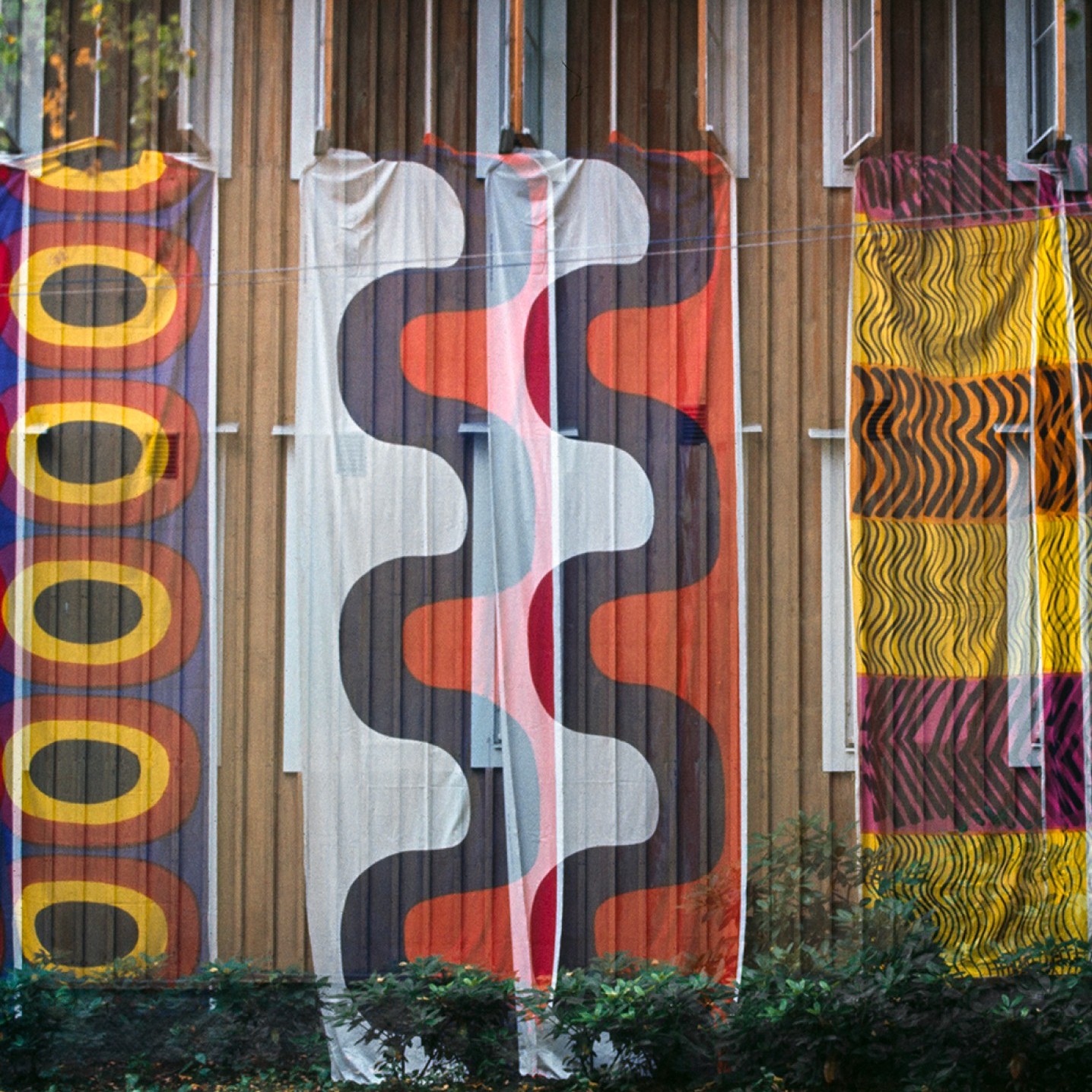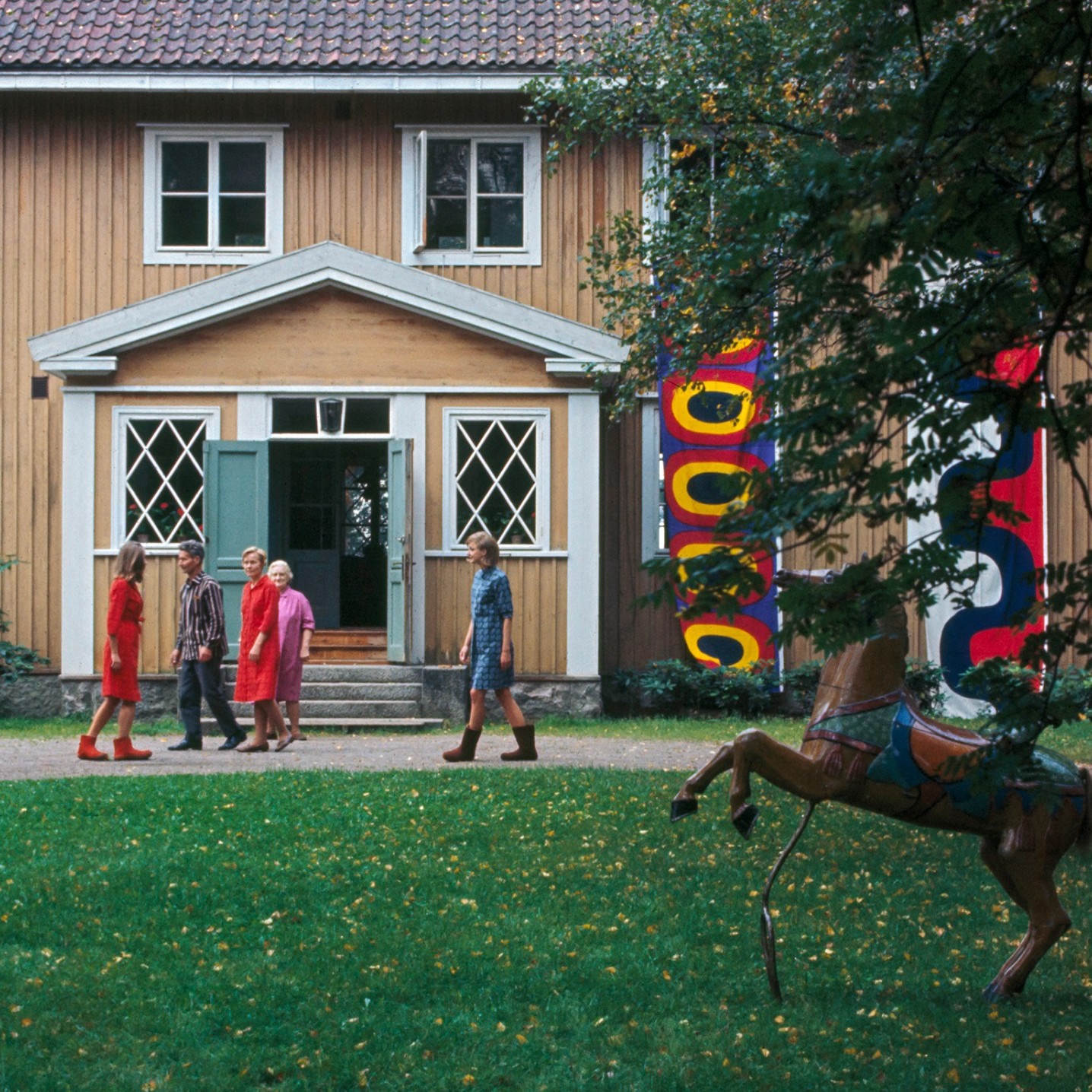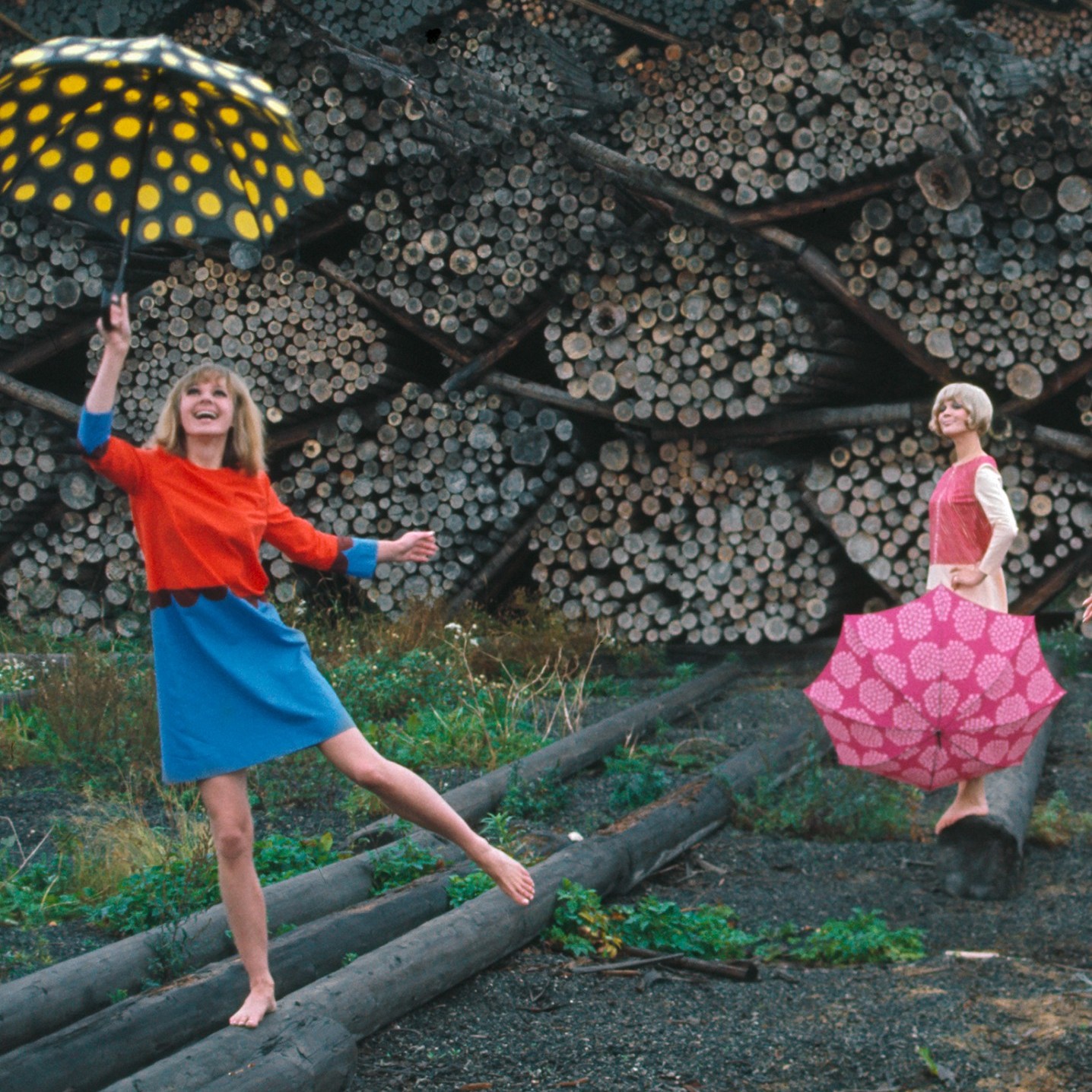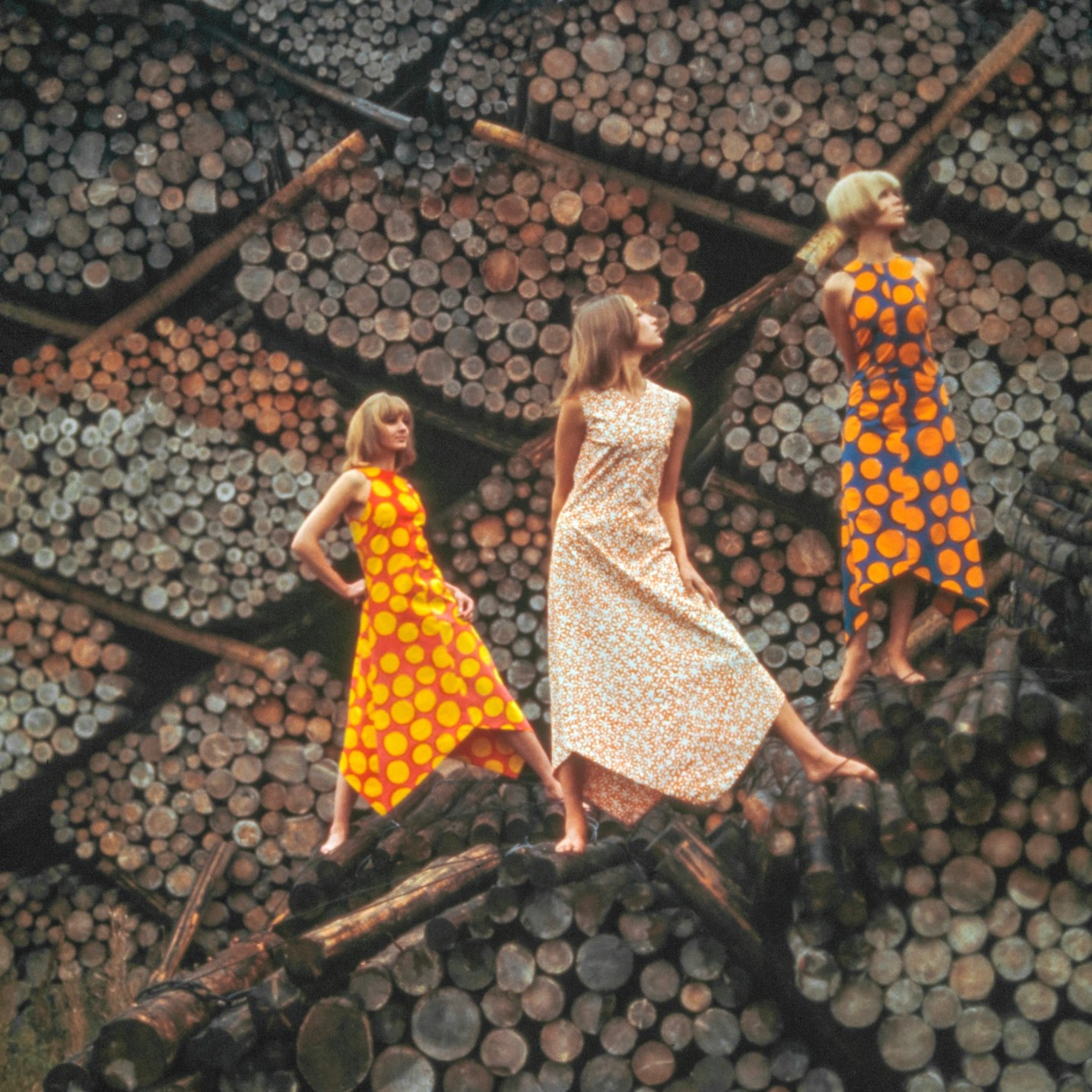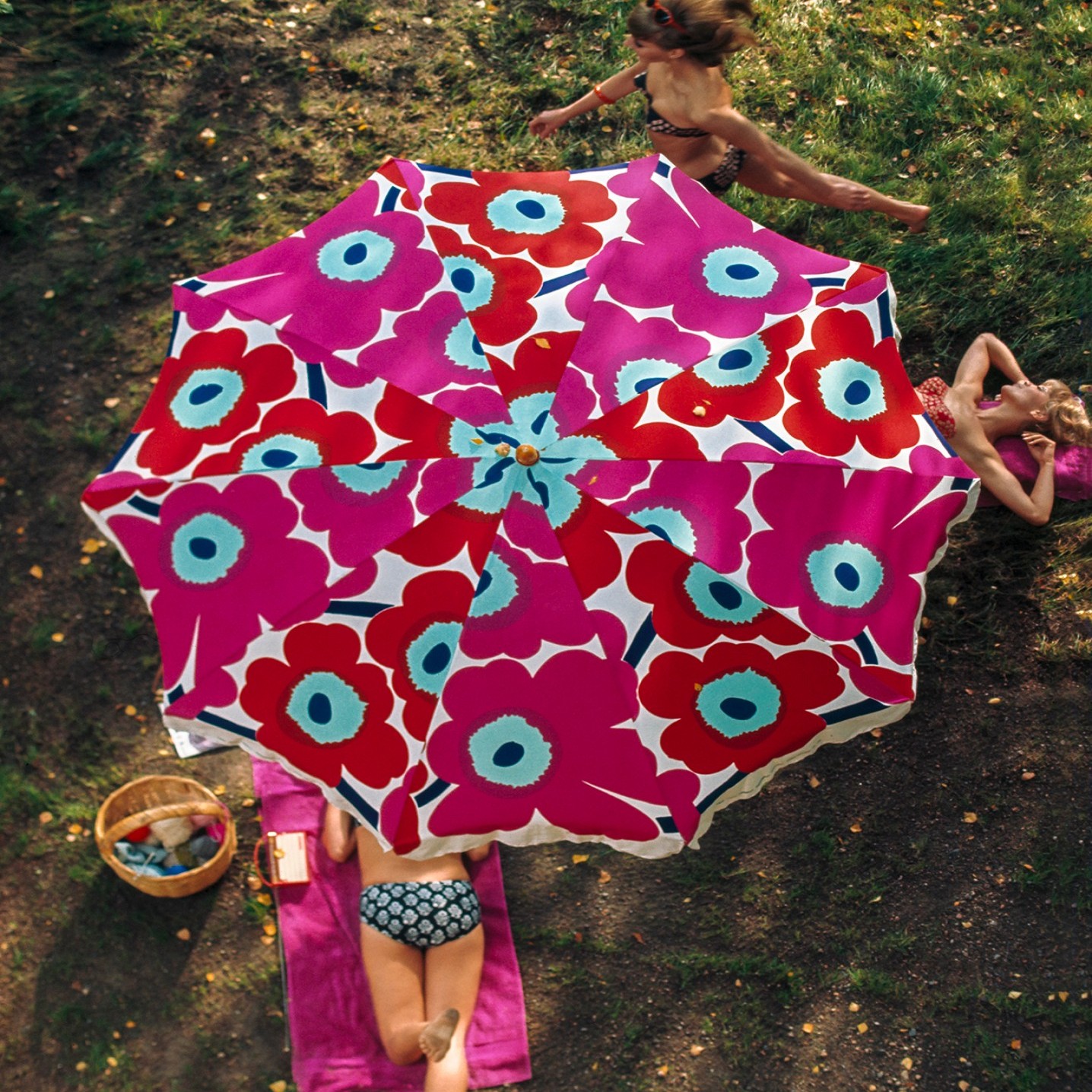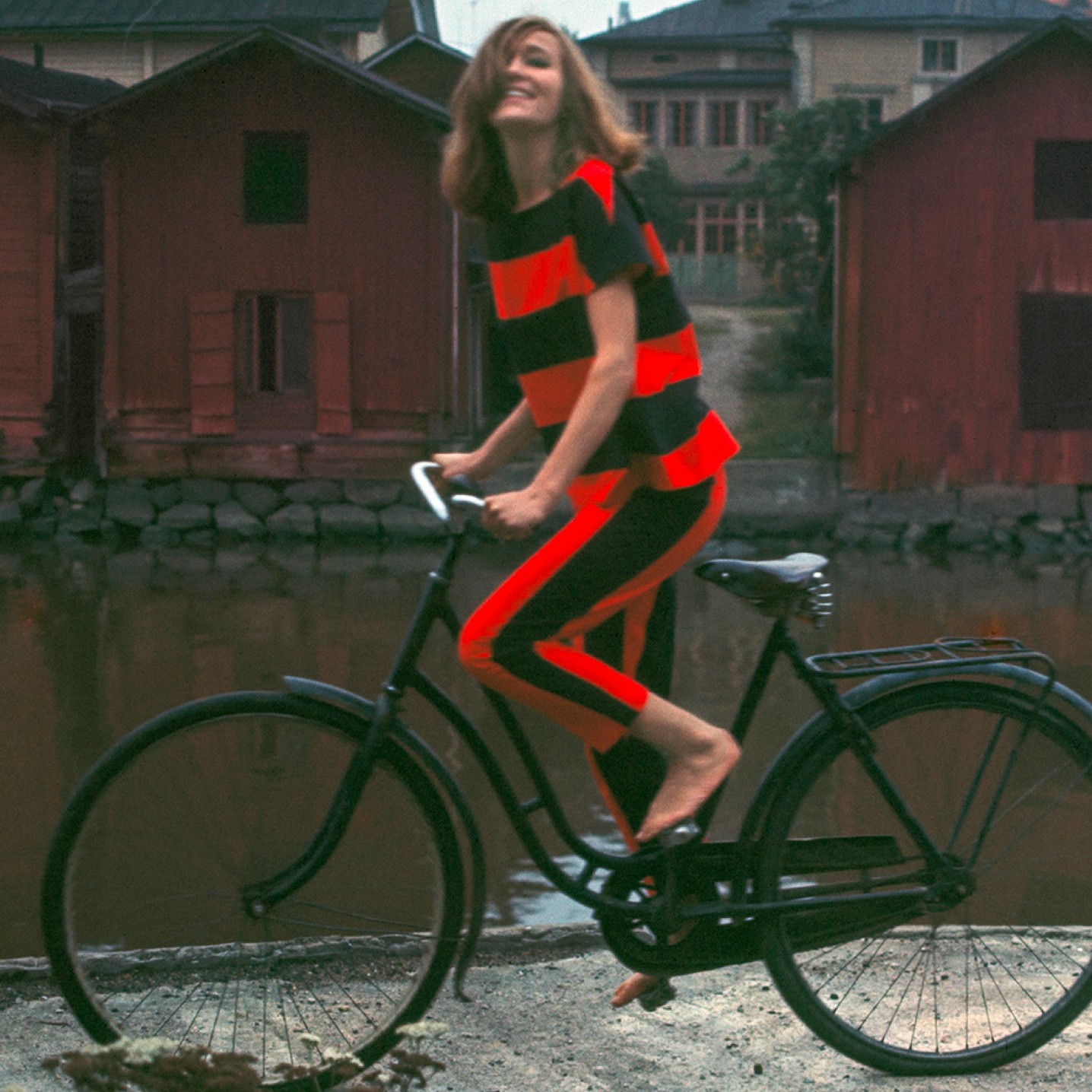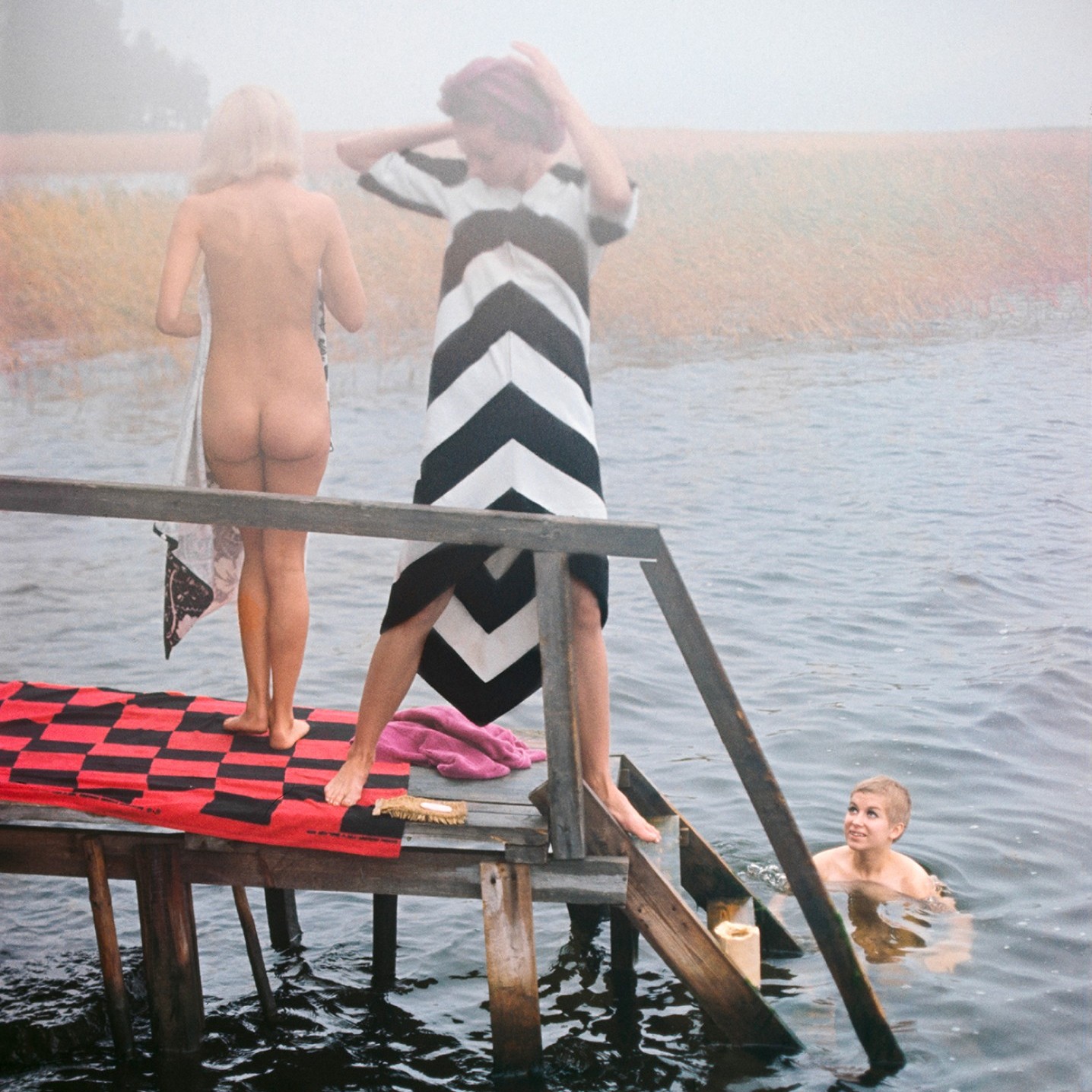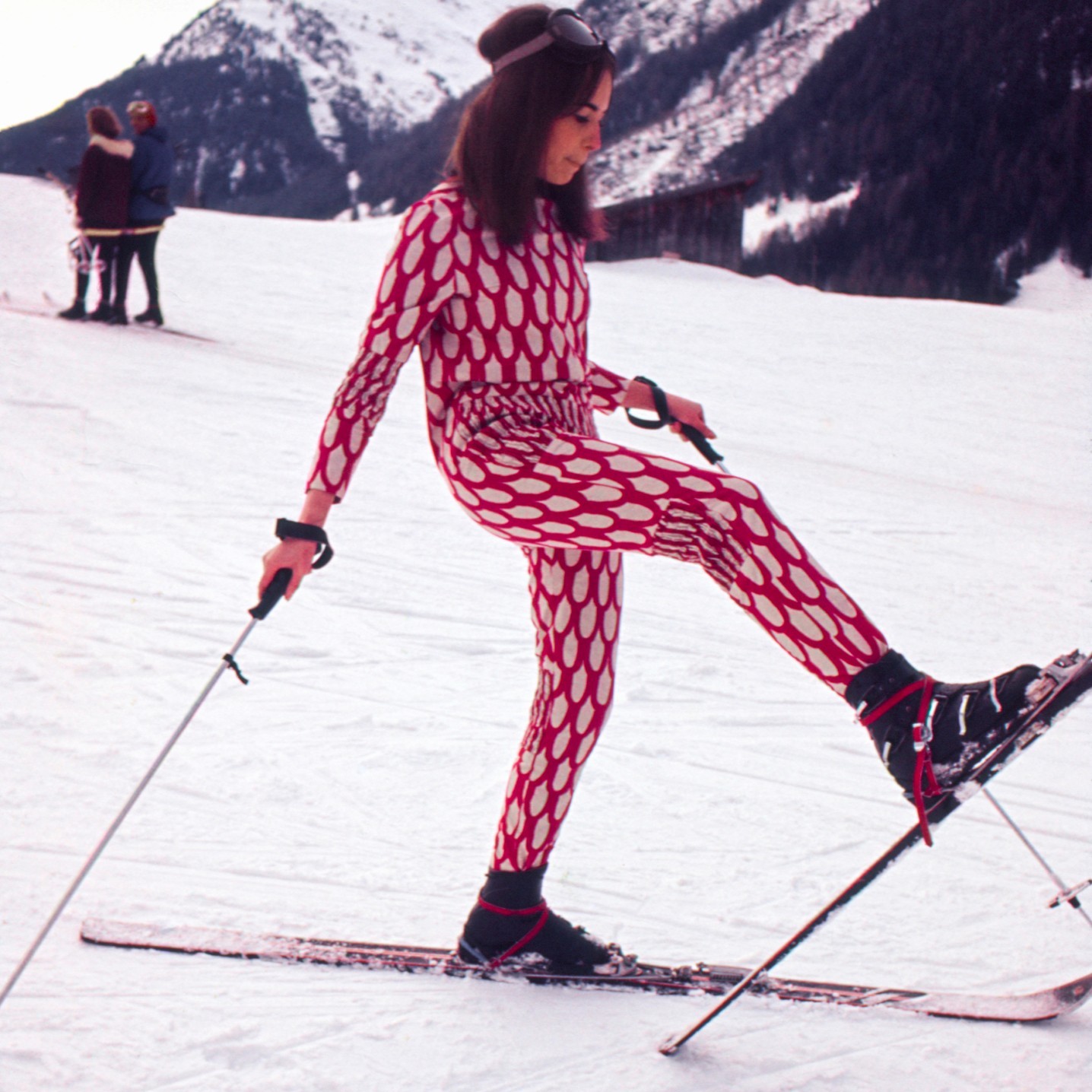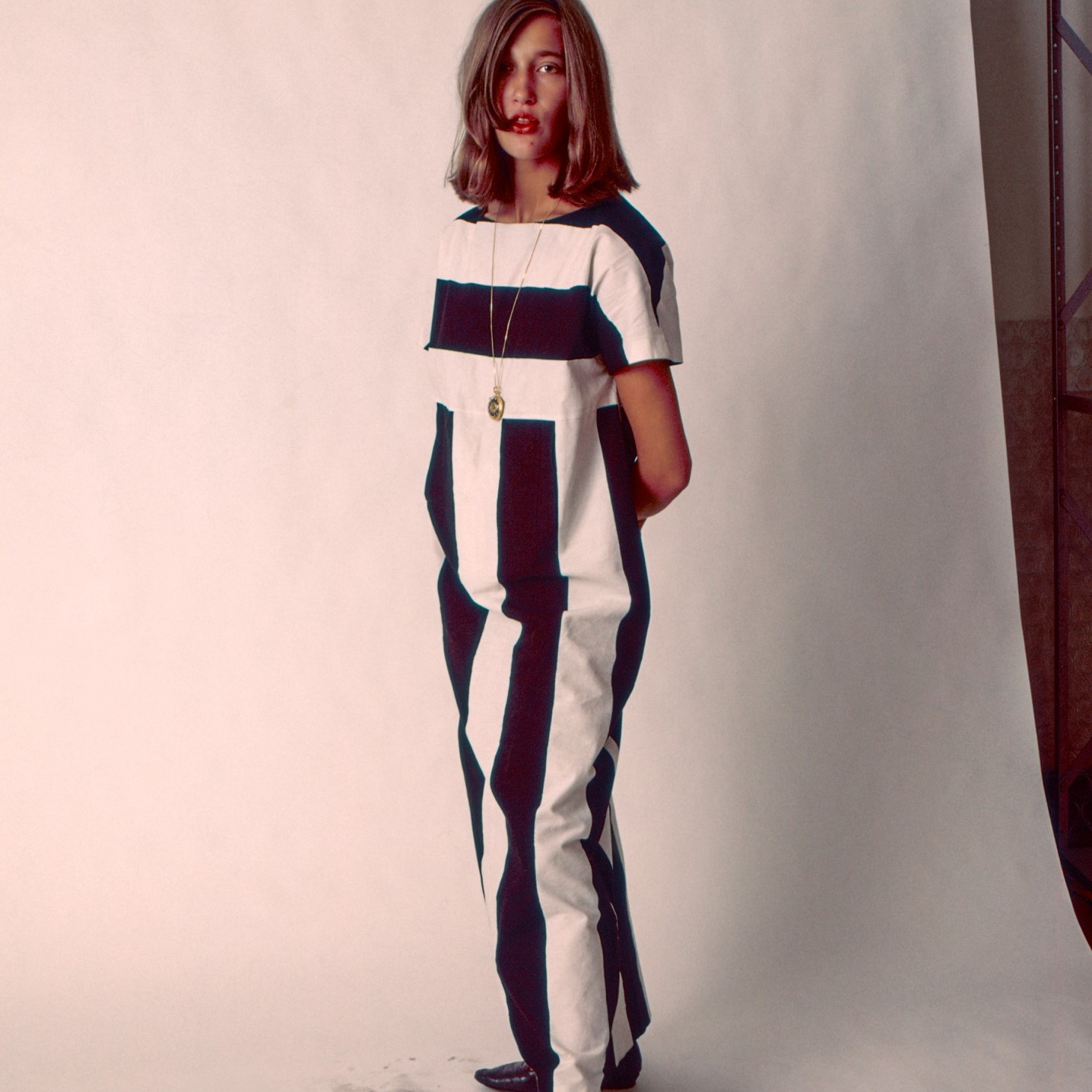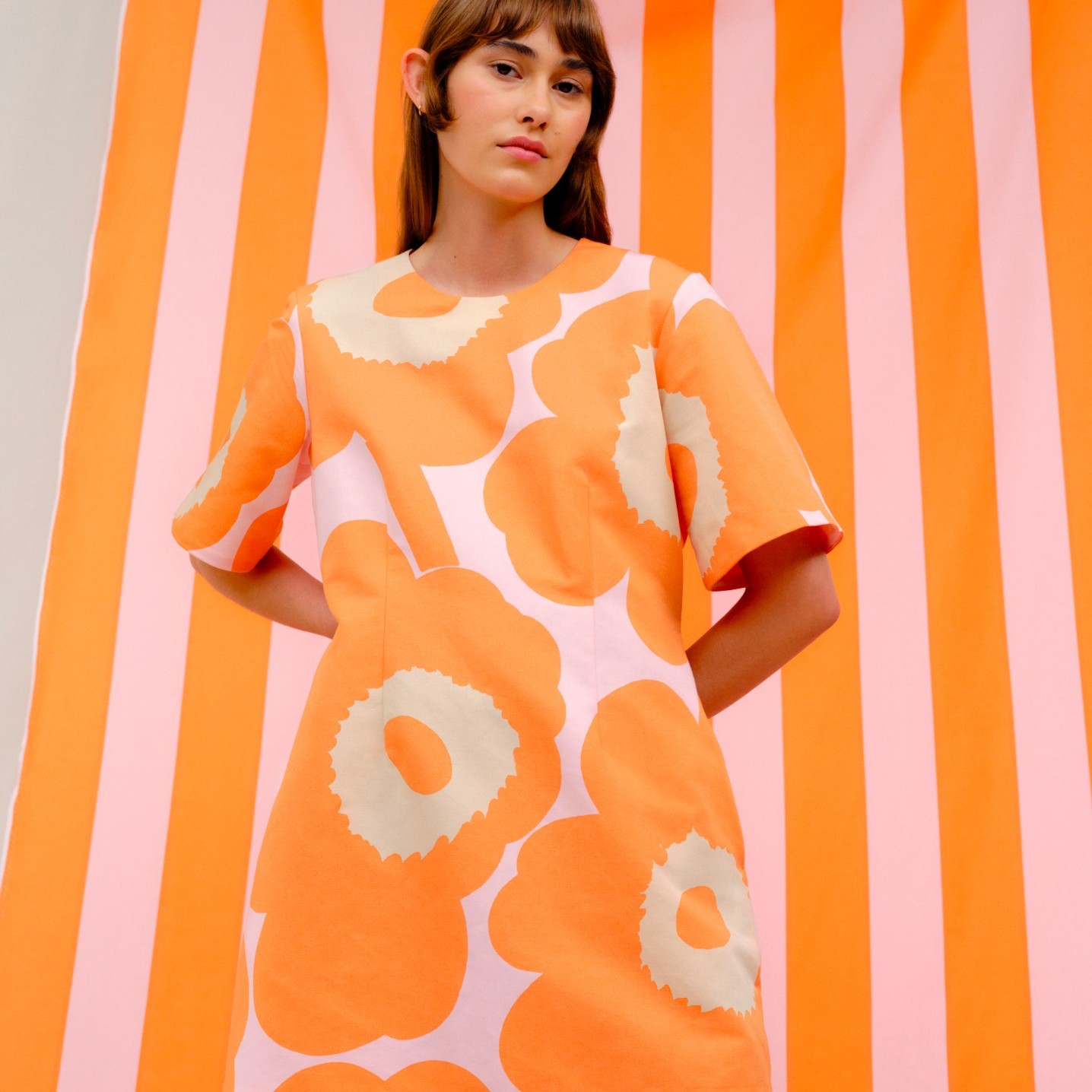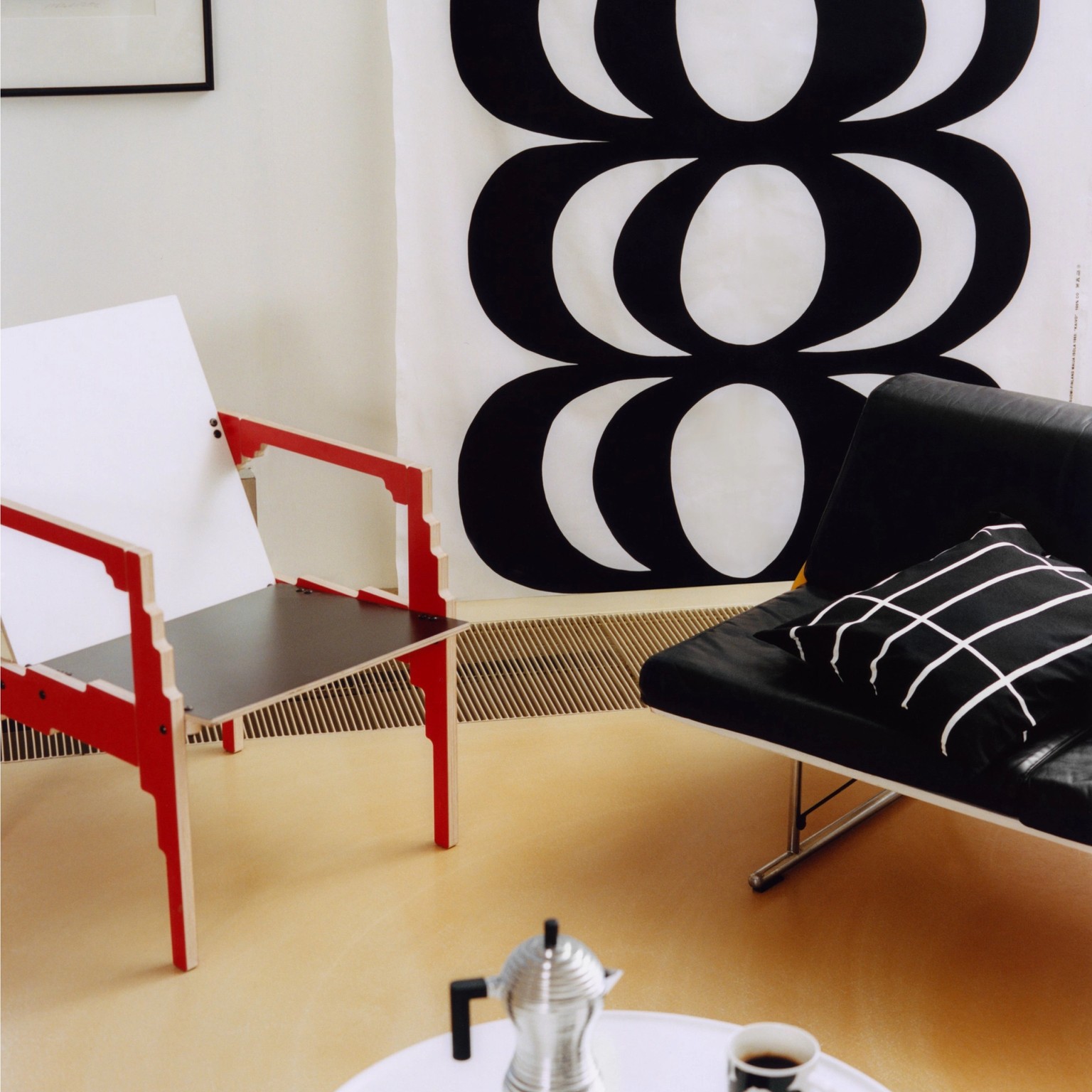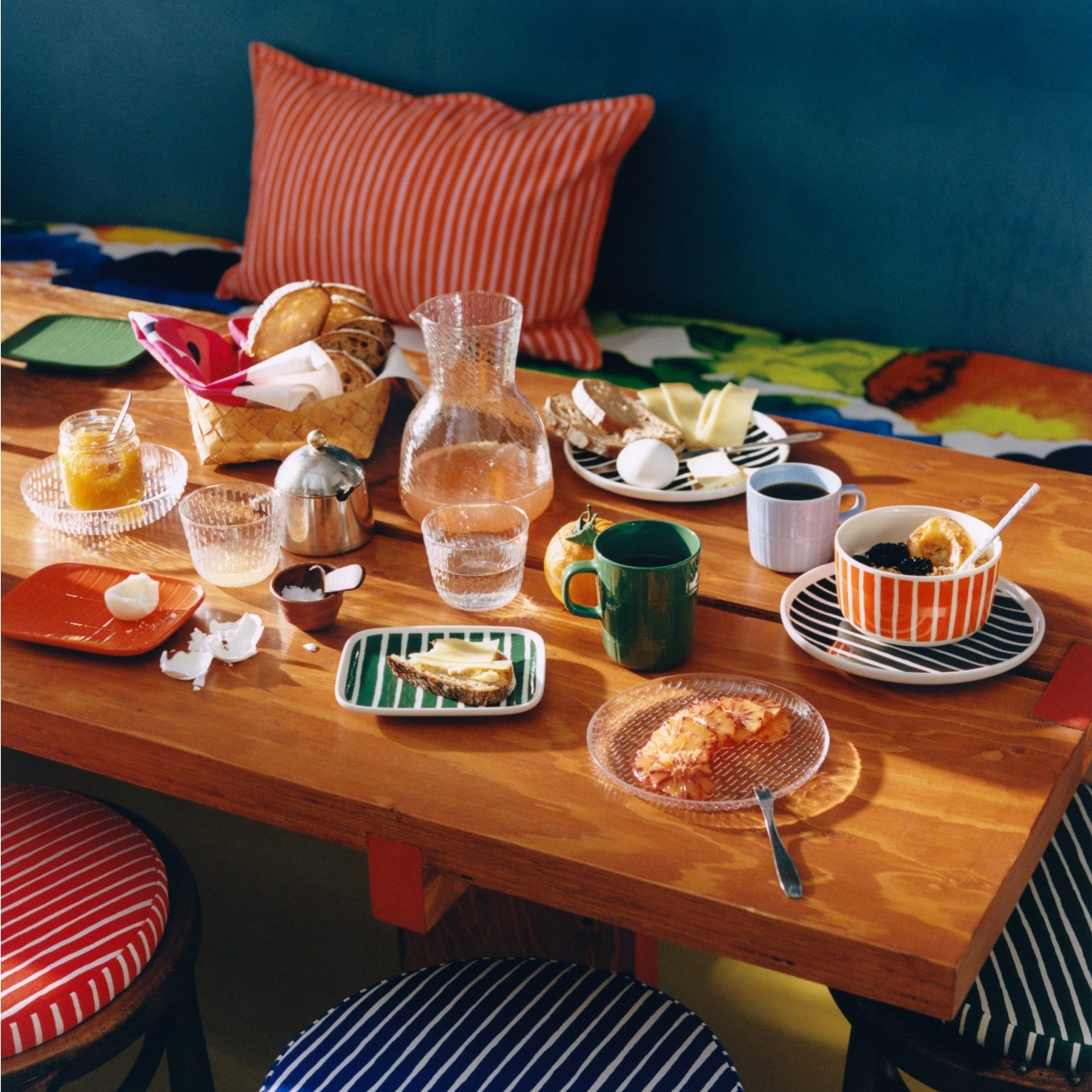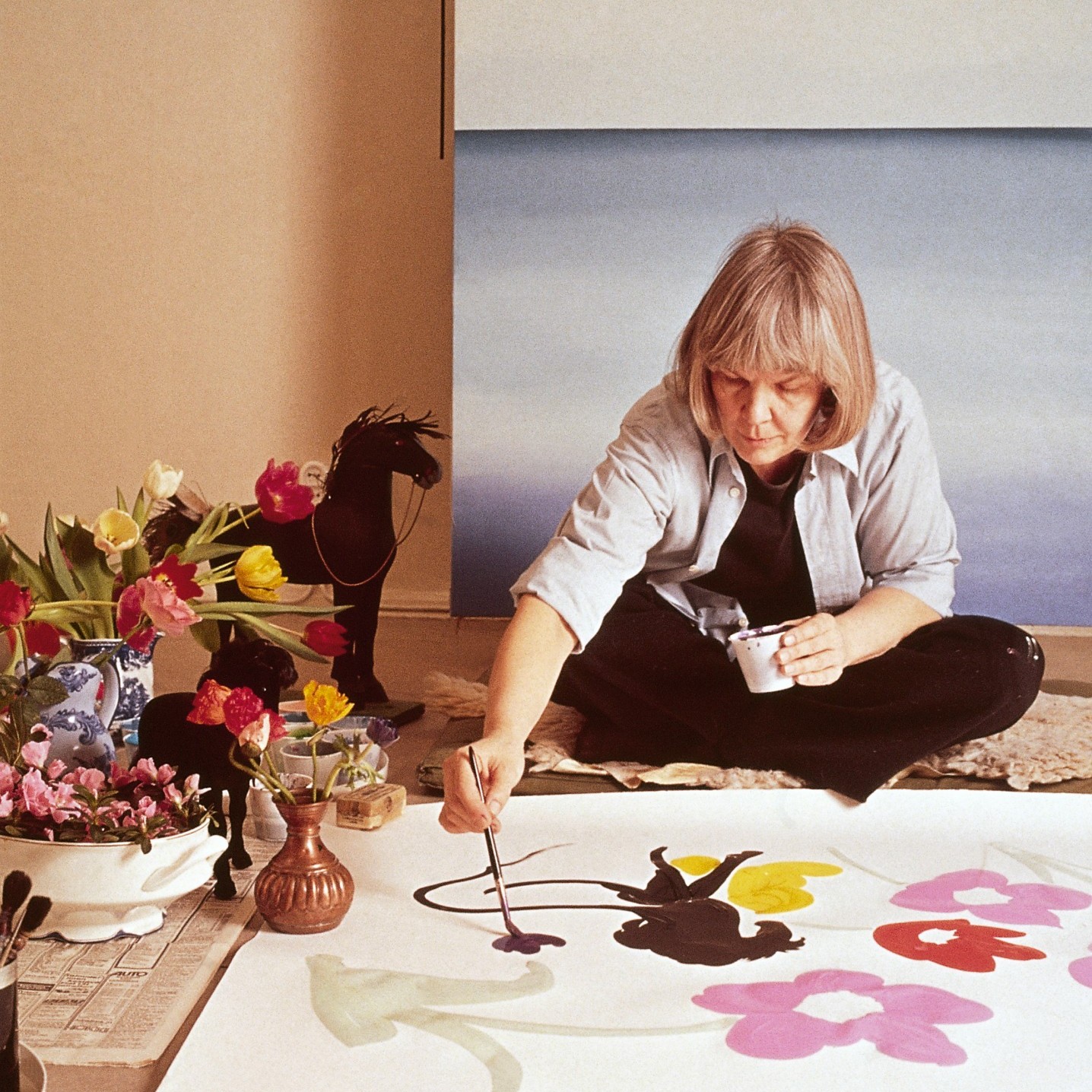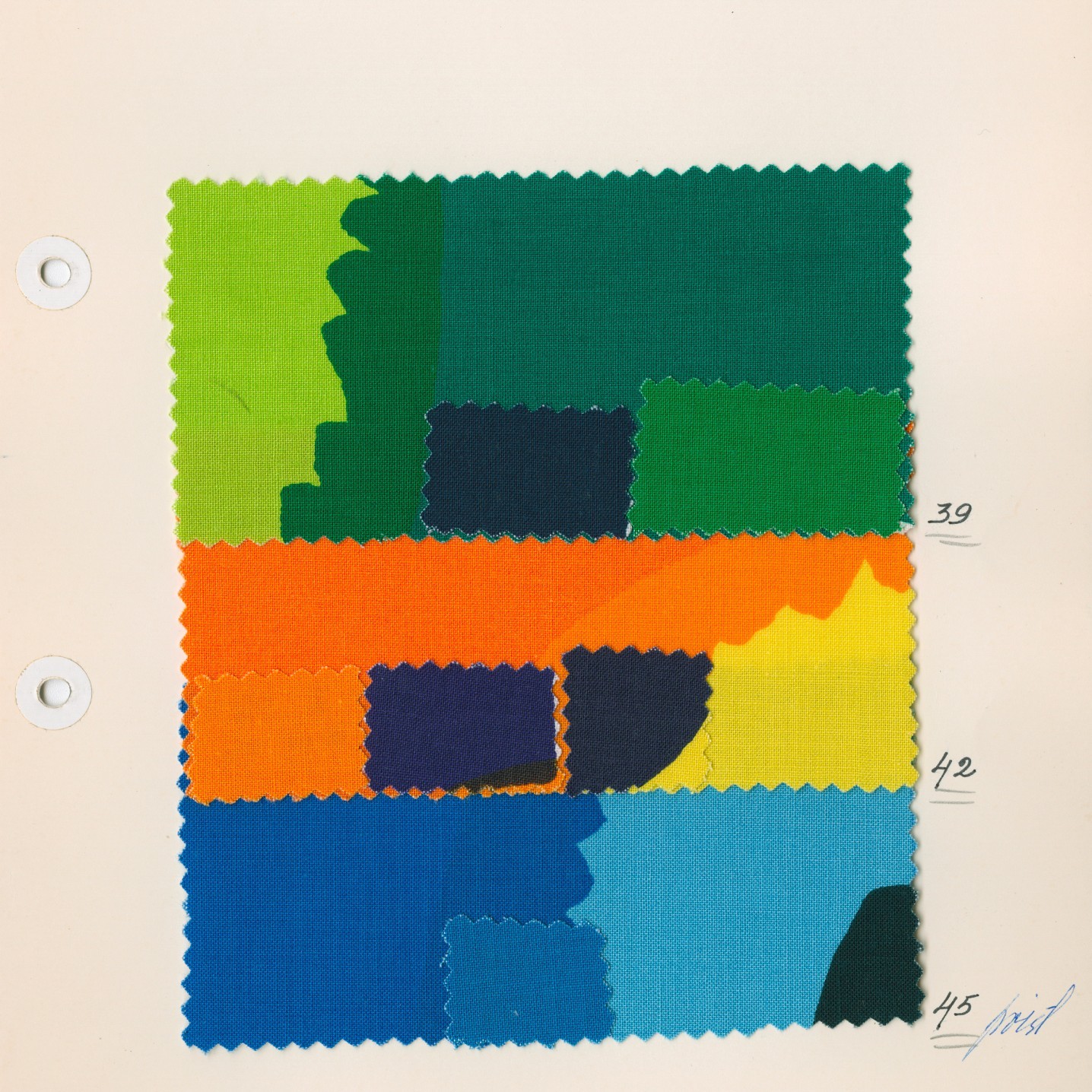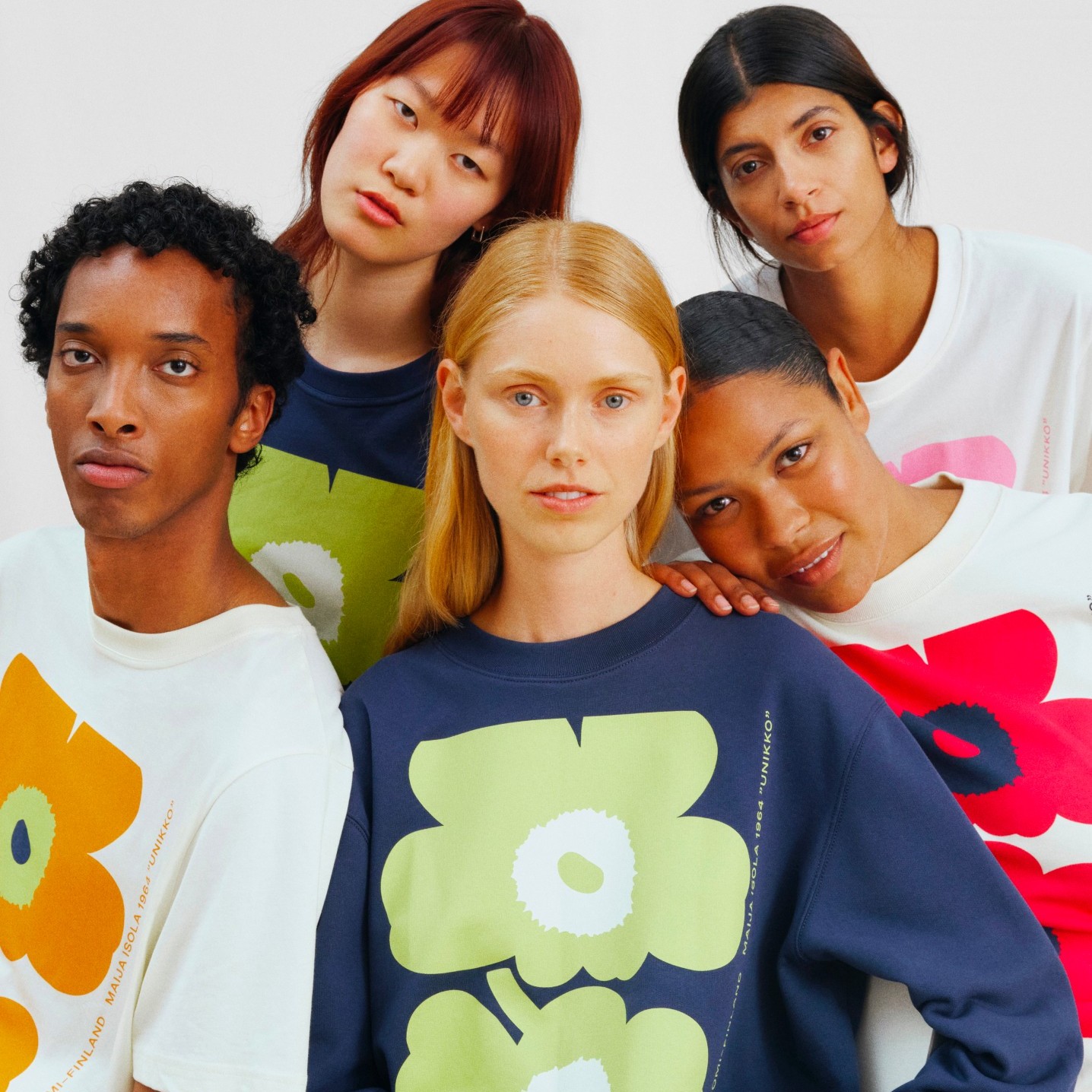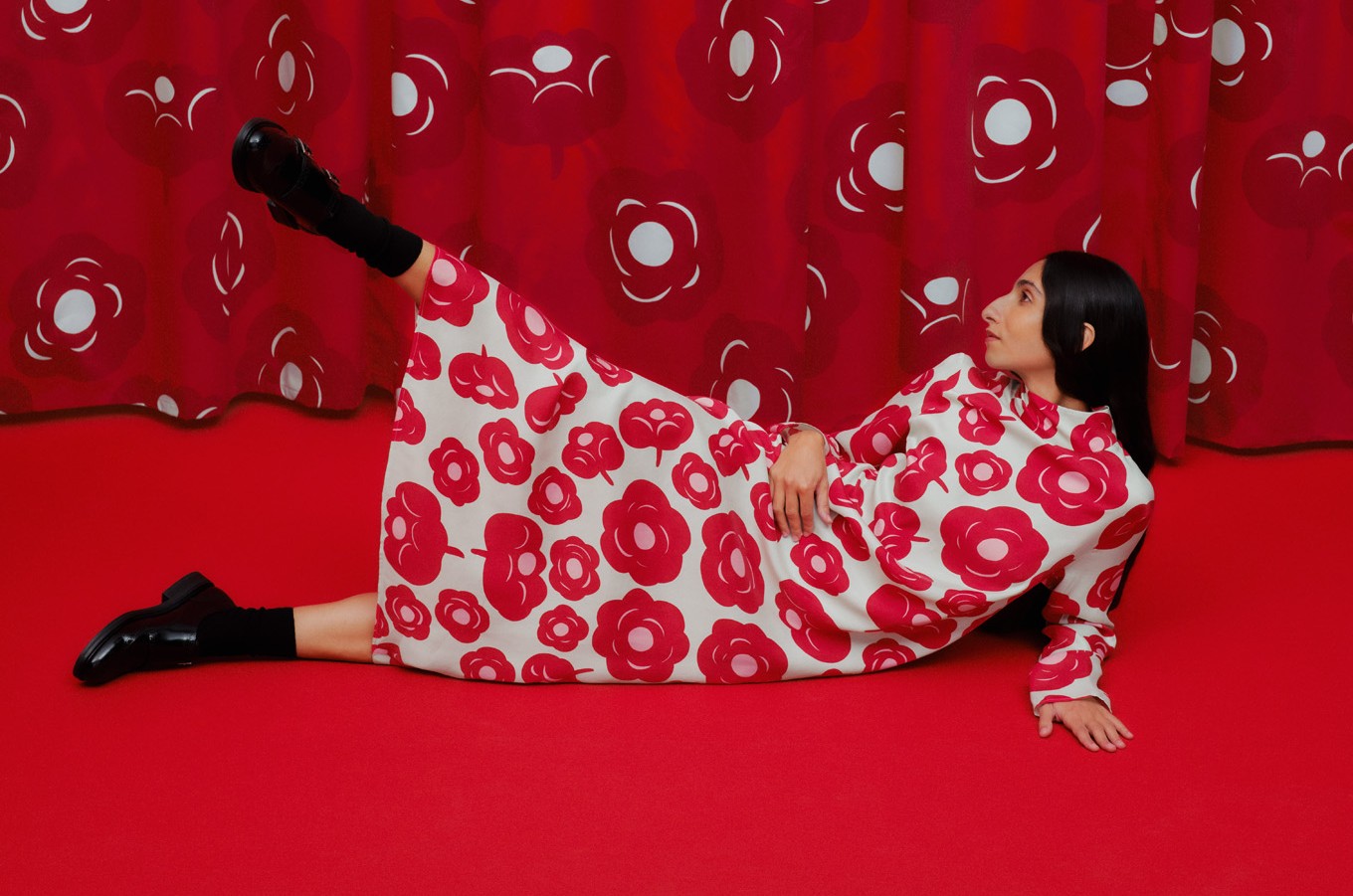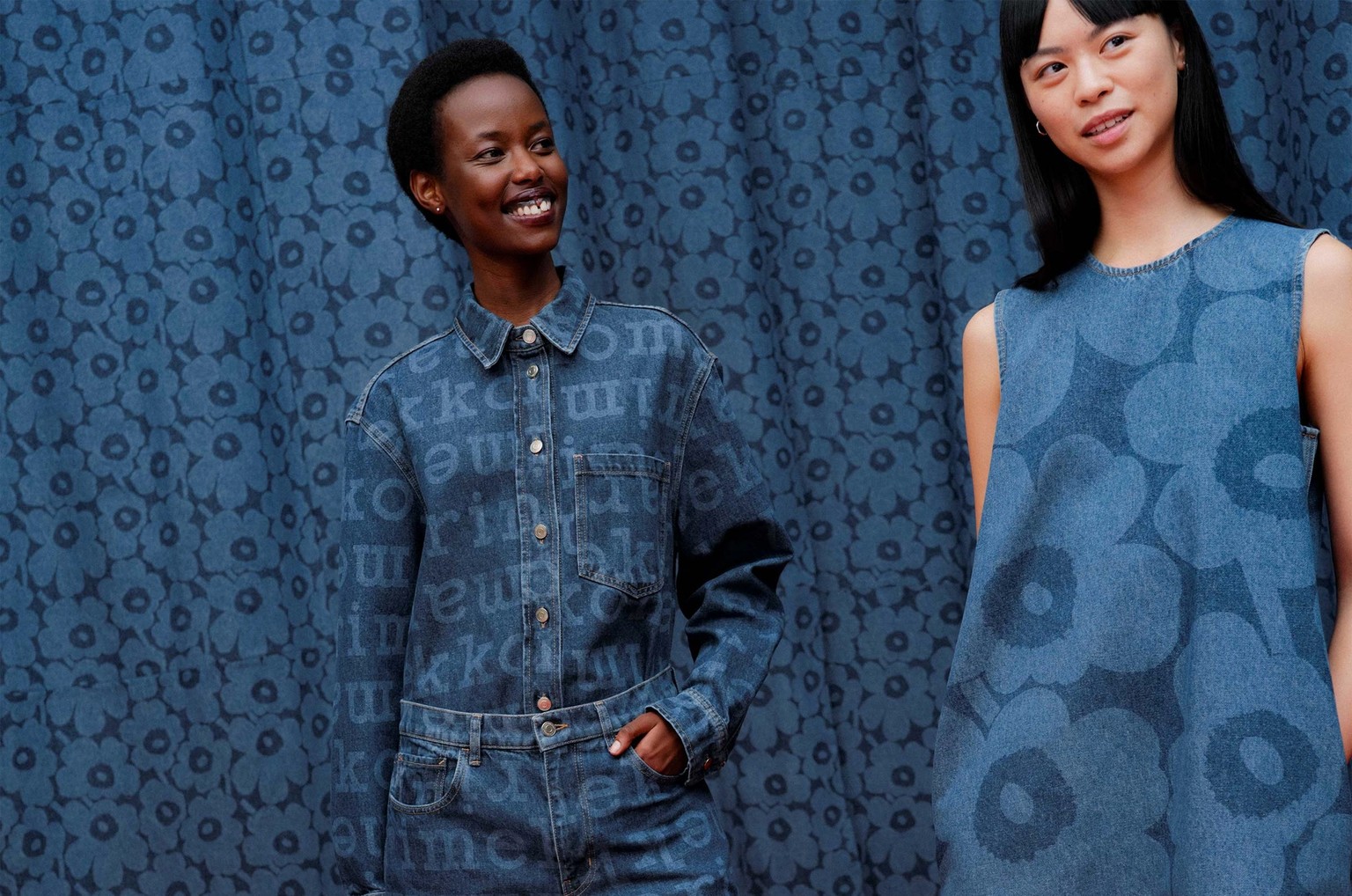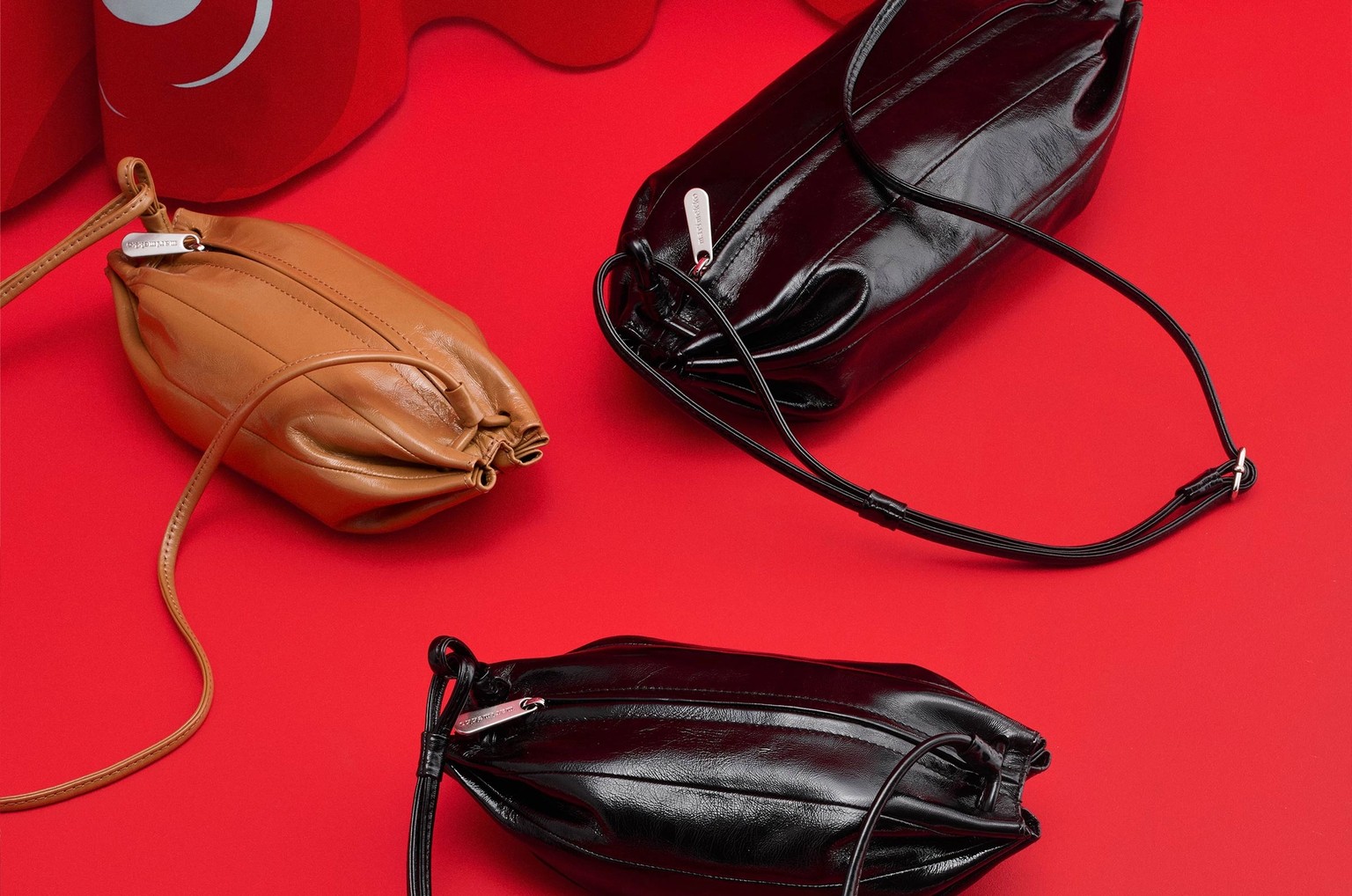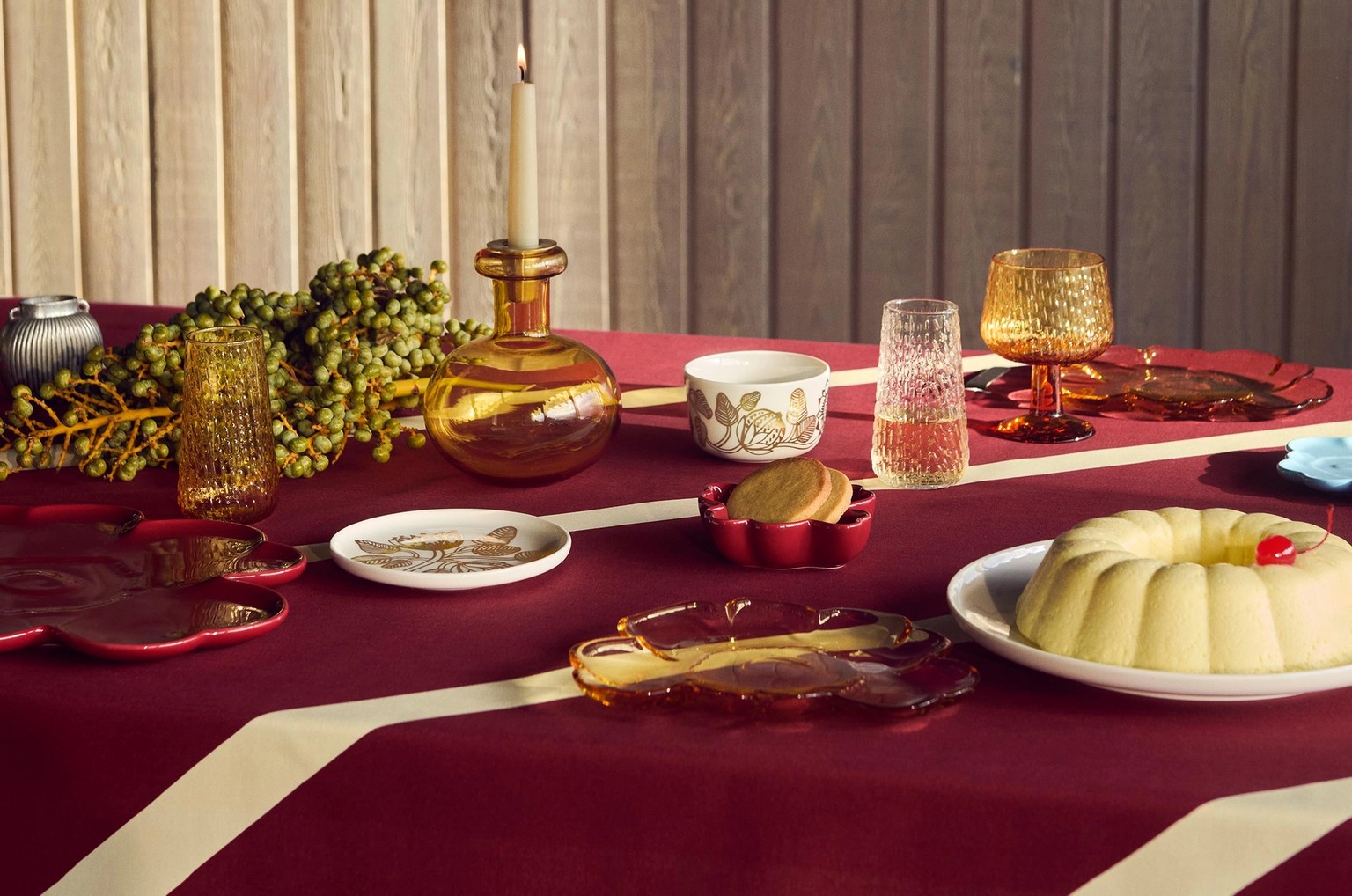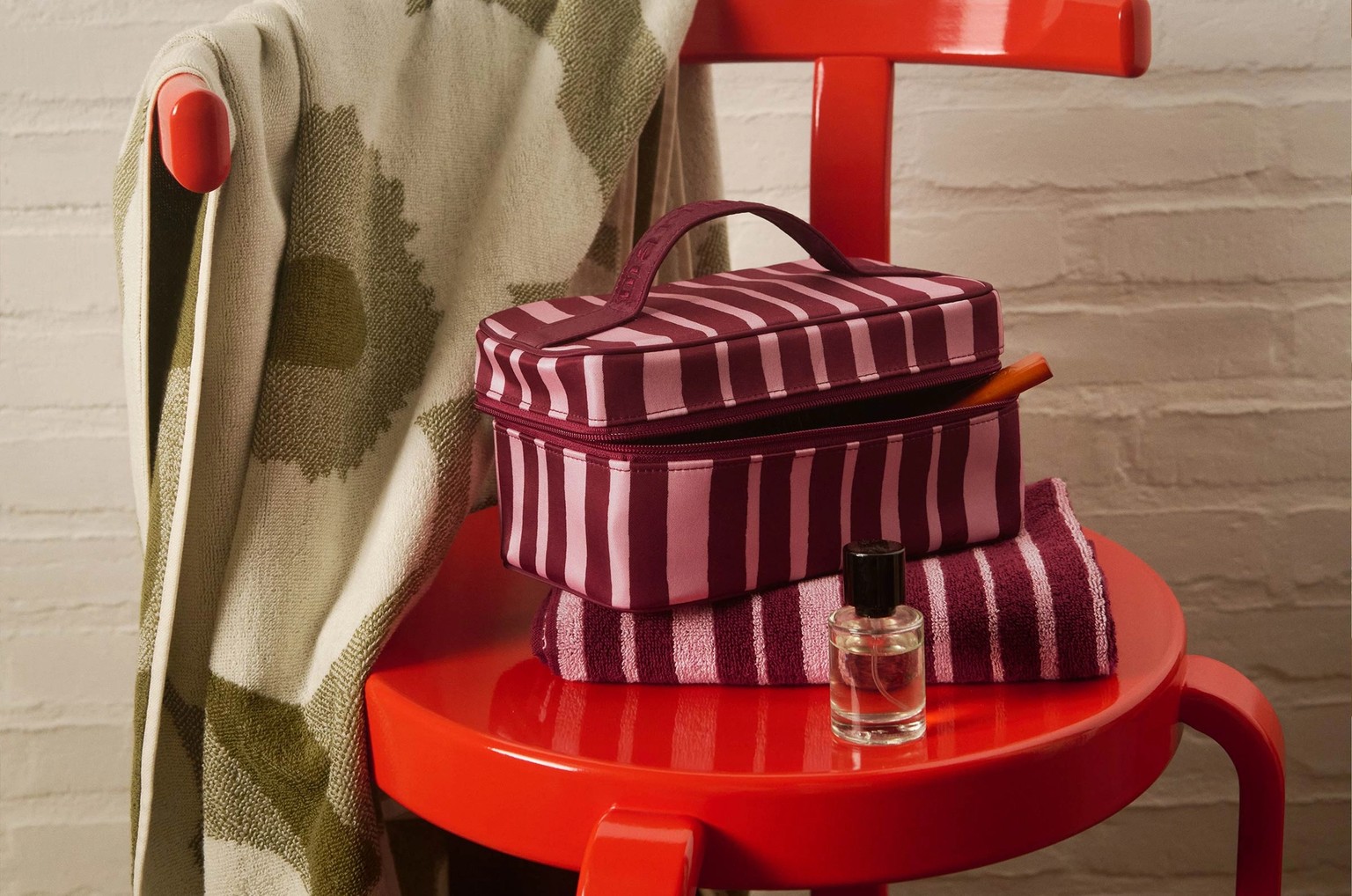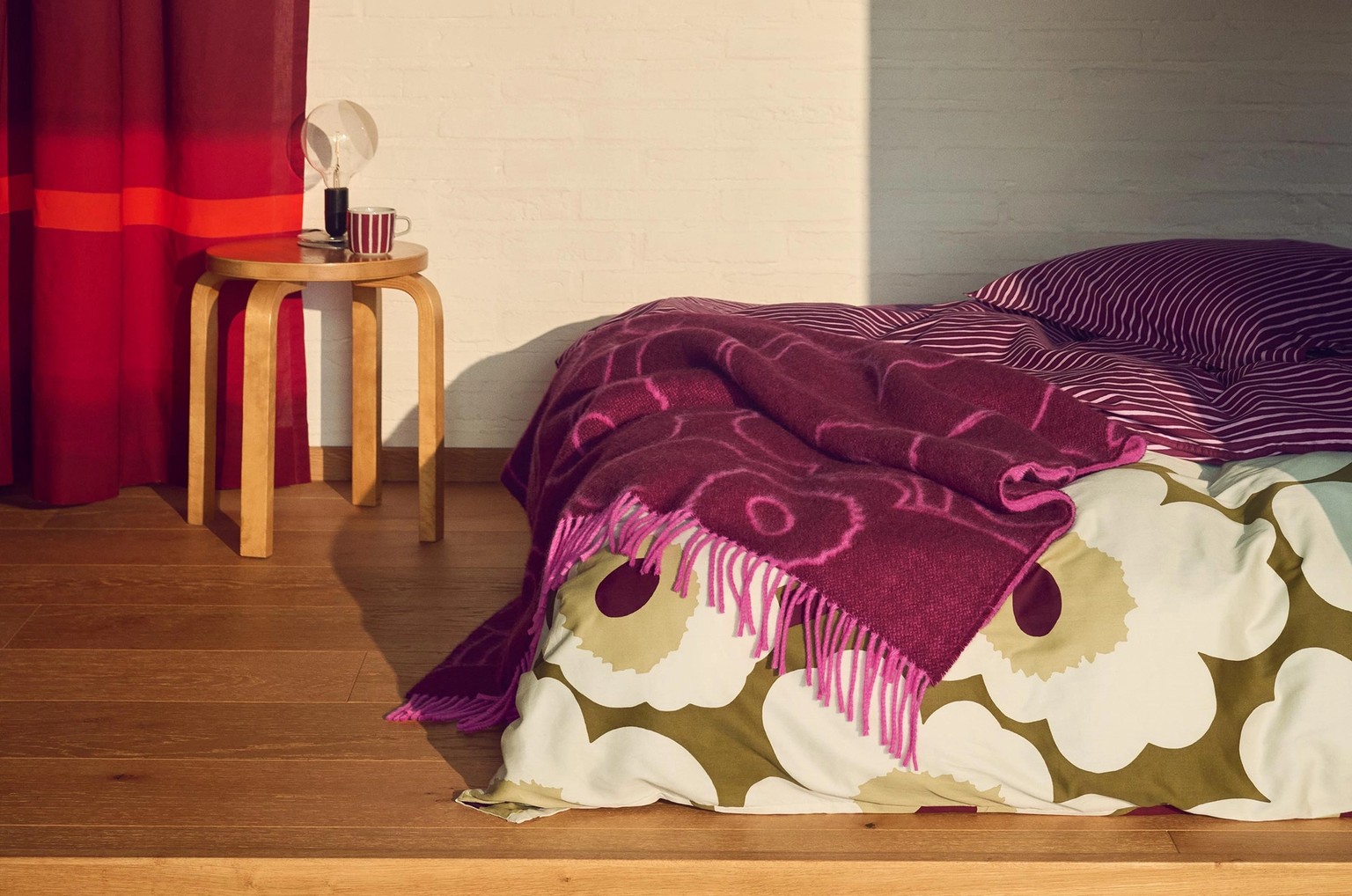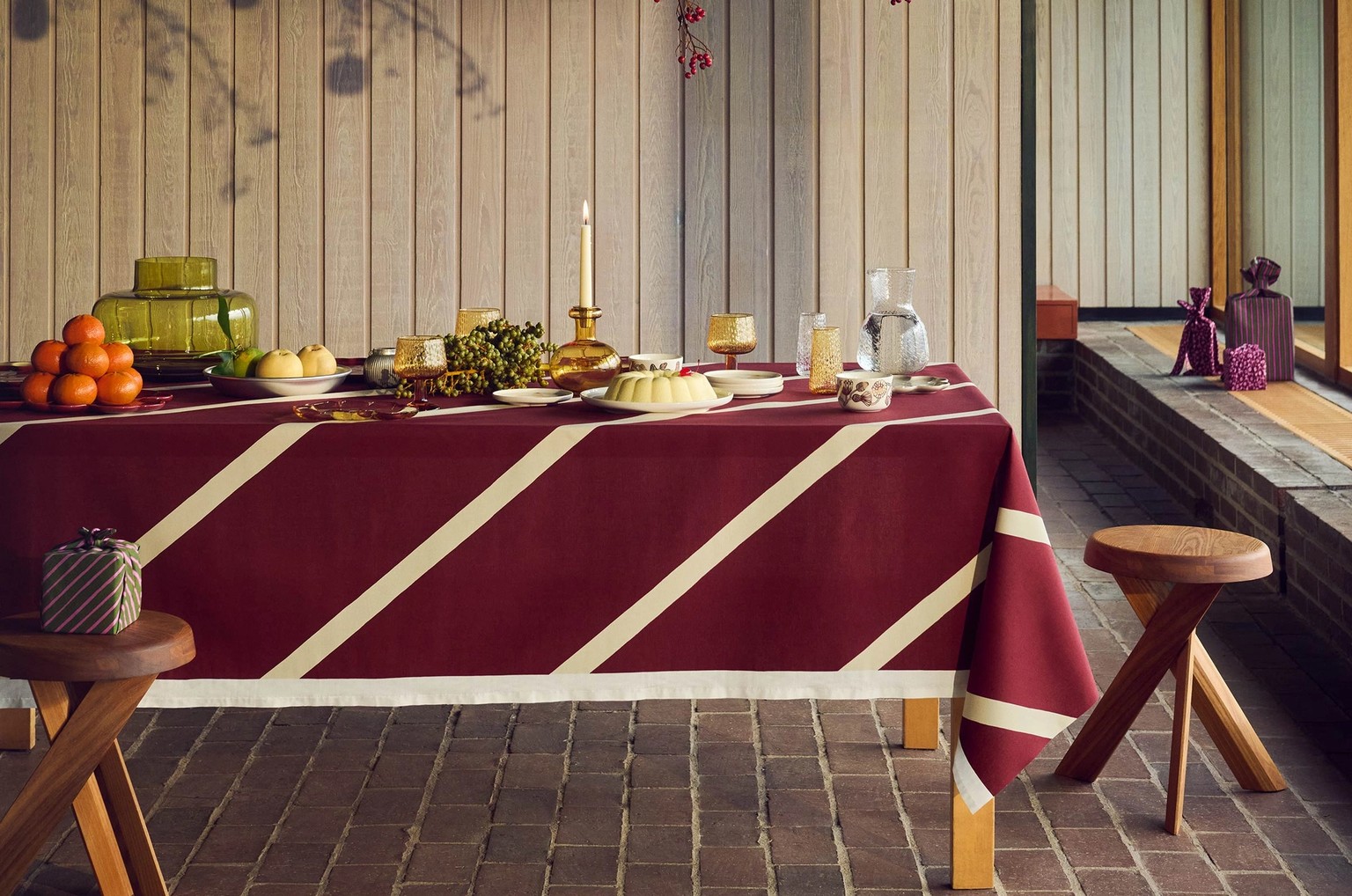The art of printmaking since 1951
Marimekko is a Finnish design house founded in 1951. The unmistakable Marimekko prints have always been worn as bold badges of positivity and personal empowerment. Our lifelong mission is to bring color and joy into lives and homes everywhere and encourage people to be happy as they are.
It all started with a dress
Back in the early fifties, Armi Ratia felt the world was missing optimism and joy. For her, Marimekko could just as well have been modern jazz, a flower shop or even an ice cream parlor, it was the uplifting lifestyle she wanted to bring to life.
What she had was fabric. From it came a dress. Not just any dress, but one alive with bold prints and carefree energy. The Marimekko dress was an instant sensation. Together with her husband, Viljo Ratia, Armi transformed that dress into one of the world’s first lifestyle design brands.
The abstract patterns, architectonic shapes and unapologetic colors struck a chord with free-spirited women of all ages and sizes. To this day, the Marimekko dress remains a powerful symbol of self-expression, always contemporary yet true to its original spirit.
Marimekko style from 1964, photographed by Tony Vaccaro for LIFE Magazine
Marimekko Spring/Summer 2025 collection featuring the Unikko print by Maija Isola
The Marimekko dress sparked an entire lifestyle universe. Since the beginning, our home products have also carried the uplifting message of timeless prints and colors.
The Marimekko dress sparked an entire lifestyle universe. Since the beginning, our home products have also carried the uplifting message of timeless prints and colors.
Printed in Helsinki
Our Helsinki printing factory is a bustling, free-spirited playground of creativity and the very heart of Marimekko. Even our headquarters were built around it. Over the years, Marimekko designers have created more than 3,500 prints, with new artworks introduced every year.
From the very beginning, large-scale patterns and overlapping vibrant colors have been the hallmarks of our designs. The iconic prints have been reimagined again and again in thousands of imaginative color palettes.
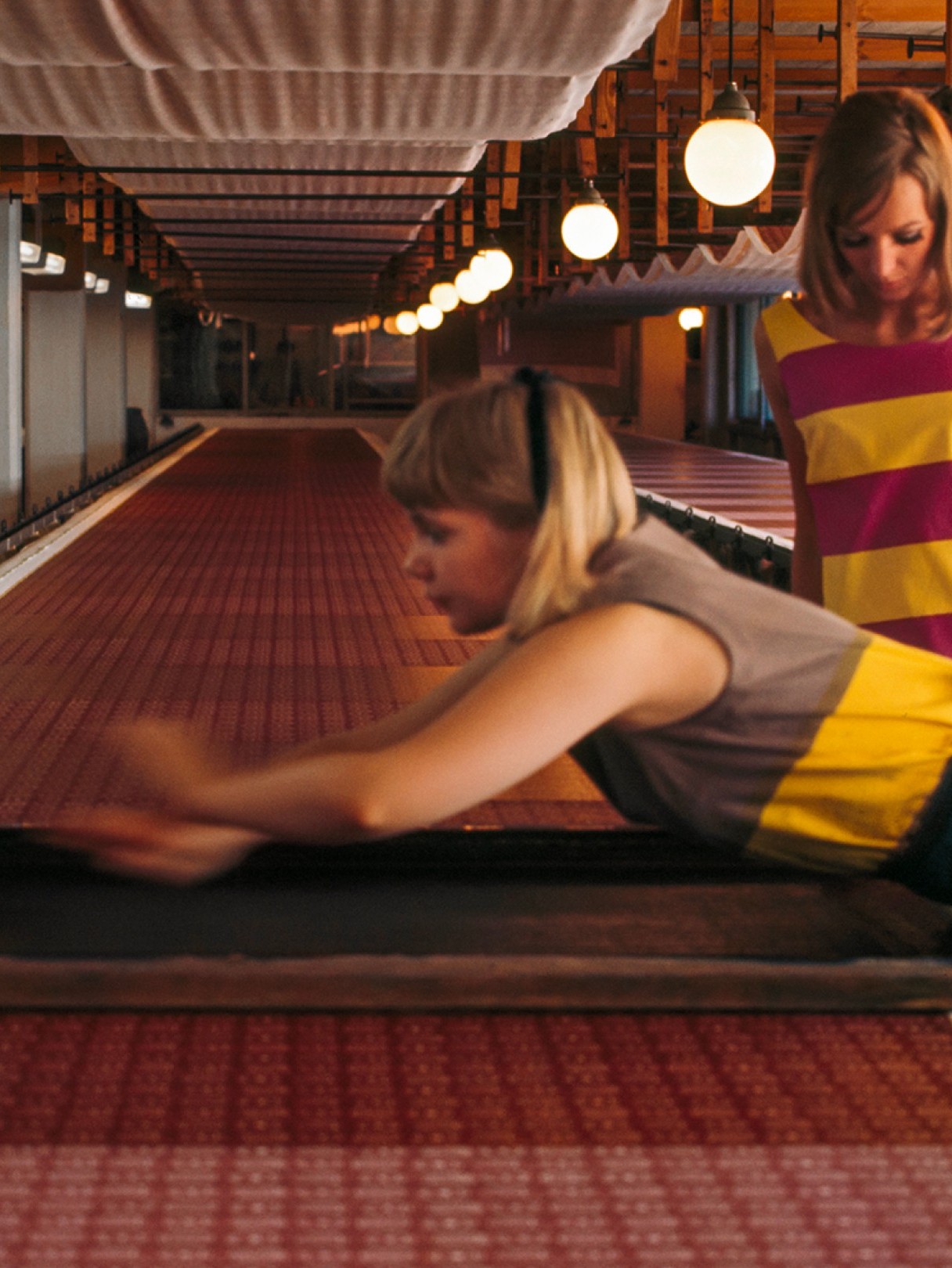
“Where’s Marimekko’s secret? I don’t know. Perhaps it’s hidden under the printing table.”
“Where’s Marimekko’s secret? I don’t know. Perhaps it’s hidden under the printing table.”
The Marimekko philosophy
Marimekko is, above all, a joyful way of life and a philosophy for living. We design objects to be used and loved for generations, thanks to their timeless character and lasting quality. Blending new ideas with inspiration from our archive, our designers and visiting artists aren’t chasing trends. Instead, they seek to capture the optimistic spirit of Marimekko, a spirit that feels just as contemporary today as it did at the very beginning.
Maija Isola (1927–2001) designed more than 500 patterns for Marimekko.
Experimenting with print techniques, exploring new ideas and doing things together have always been the path to innovation at Marimekko. Inside our printing factory, artists and designers work alongside skilled craftspeople in a shared pursuit of originality. Our thriving creative community is based on inviting creatives to collaborate with us. We wholeheartedly believe in the power of community in everything we do.
Perfect imperfections
The iconic Marimekko prints come to life in Herttoniemi, Helsinki. Each artist has their method of translating ideas and visions into sketches. Many paint or draw by hand; some work digitally, while others use photographs, paper cuttings or dried plants. No matter the method, the human touch, perfectly imperfect, is always visible in a Marimekko print.
Coloring outside the lines
From championing empowerment to celebrating democratic design, inclusivity and equality have always been at the heart of Marimekko. Be true to yourself and express your creativity! This was Armi Ratia’s dream for her customers, and it remains our message today. The same spirit guides our organization, where we are committed to giving every individual the space to shine, regardless of gender, age or self-identification.
